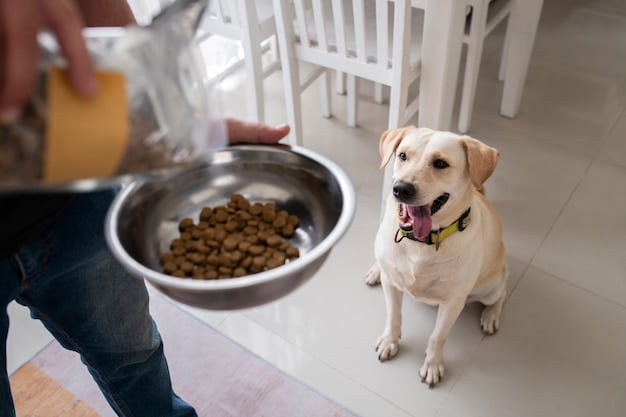
1. Introduction to the Carnivore Diet for Dogs
The carnivore diet, also known as the raw meat diet or ancestral diet, aims to replicate the diet of wild carnivores. This means feeding your dog primarily raw meat, bones, and organs while eliminating grains, fruits, and vegetables from their diet. Advocates of this diet believe that it aligns more closely with a dog’s natural digestive system.
2. Understanding the Canine Carnivore: What Science Tells Us
Dogs are descendants of wolves, and their digestive systems have evolved to thrive on animal-based proteins. Research indicates that dogs have a shorter digestive tract, better suited for breaking down and absorbing nutrients from meat.
3. The Benefits of the Carnivore Diet for Dogs
Proponents of the carnivore diet claim that it can lead to improved coat health, increased energy levels, better dental hygiene, and even a reduced risk of certain chronic diseases. The diet is rich in essential nutrients like protein, amino acids, and fatty acids that contribute to overall well-being.
4. Addressing Concerns: Is the Carnivore Diet Safe?
While the carnivore diet offers several benefits, it’s important to address potential concerns, such as bacterial contamination and nutritional imbalances. Consulting with a veterinarian and following proper food handling practices can help mitigate these risks.
5. Transitioning Your Dog to a Carnivore Diet: A Step-by-Step Guide
Switching your dog to a carnivore diet requires a gradual transition to avoid digestive upset. Start by introducing small amounts of raw meat and gradually increase the portions over several weeks. Monitor your dog’s response and adjust as needed.
6. Meal Ideas and Recipes for a Balanced Carnivore Diet
Crafting well-balanced meals is key to the success of the carnivore diet. Include a variety of protein sources, such as beef, chicken, and fish, along with organ meats and bones. Consider consulting a canine nutritionist for personalized meal plans.
7. Common Myths About the Carnivore Diet Debunked
The carnivore diet has its share of myths and misconceptions. Let’s debunk some common ones, such as the belief that dogs require carbohydrates for energy or that raw bones are dangerous. Separating fact from fiction is crucial for making informed decisions about your dog’s diet.
8. Frequently Asked Questions (FAQs)
Q1: Is the carnivore diet suitable for all dog breeds? Q2: Can I feed my dog exclusively raw meat? Q3: Are there any potential allergic reactions to watch out for? Q4: How do I ensure my dog gets all the necessary nutrients? Q5: What are the signs that my dog is thriving on the carnivore diet?
Conclusion
In conclusion, the carnivore diet for dogs presents a unique approach to canine nutrition that aims to align with their ancestral eating habits. While it offers numerous potential benefits, it’s important to approach the diet with careful planning and consultation with a veterinarian. By understanding the science, addressing concerns, and crafting well-balanced meals, you can embark on a journey to provide your dog with a diet that supports their overall health and well-being.







